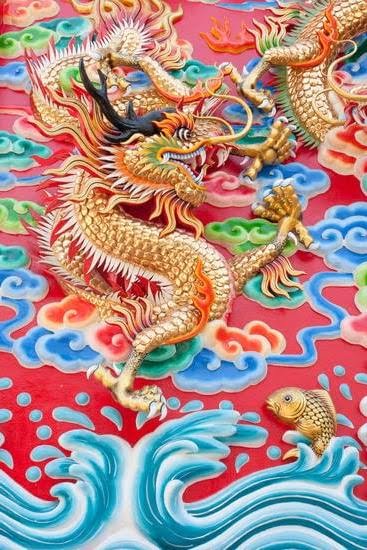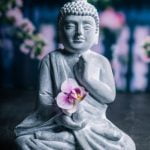Feng Shui House Warming: Exploring the ancient art of Feng Shui in house blessings and energy flow is a tradition that dates back centuries. The concept of harmonizing one’s living space with positive energies has been an integral part of various cultures and belief systems. In the context of housewarming ceremonies, incorporating Feng Shui principles can set the tone for a harmonious and prosperous beginning in a new home.
Originating from China, Feng Shui is a practice that focuses on creating balance and harmony in the environment by arranging furniture, decor, and elements in a way that promotes positive energy flow. This ancient art believes that the placement of objects within a space can affect the energy (chi) that flows through it. Therefore, in the context of housewarming ceremonies, applying Feng Shui principles can create an atmosphere filled with auspicious energies to welcome new beginnings.
Choosing an auspicious date for a housewarming ceremony based on Feng Shui principles is crucial as it sets the tone for the future wellbeing of the household. By aligning with celestial energies, individuals can harness positive forces to bring good fortune, health, and prosperity into their lives.
The significance of setting up the space according to Feng Shui guidelines during a housewarming ceremony goes beyond just aesthetics – it paves the way for a nurtured and balanced environment conducive to happiness and success.
History of Feng Shui
Feng Shui, an ancient Chinese practice that focuses on harmony and energy flow in spaces, has been an essential element in house blessings and ceremonies for centuries. The history of Feng Shui dates back thousands of years to ancient China, where it was believed that aligning spaces with the natural elements could bring good luck and prosperity. The practice has evolved over time, incorporating various schools of thoughts and techniques to enhance the energy flow in homes.
One of the key aspects of Feng Shui is the belief in Qi, or life force energy, which can be harnessed and directed through the proper arrangement of furniture, decor, and architectural features. In house blessings specifically, Feng Shui practitioners aim to create a harmonious environment that supports the well-being and success of the residents. This includes considering factors such as orientation, layout, and symbolism to optimize positive energy flow throughout the home.
Throughout history, Feng Shui has been intertwined with cultural traditions and beliefs related to spirituality and auspiciousness. Housewarming ceremonies often incorporate these Feng Shui practices to ensure that the new home is not only aesthetically pleasing but also energetically balanced. By understanding the origins and development of Feng Shui practices in relation to house blessings and energy flow, individuals can create spaces that promote harmony, abundance, and overall well-being.
| Feng Shui History | House Blessings |
|---|---|
| Ancient Chinese practice focusing on harmony | Incorporating various schools of thoughts |
| Belief in Qi for directing life force energy | Creating harmonious environments for residents |
| Cultural traditions intertwined with Feng Shui | Integrating spirituality into housewarming ceremonies |
Choosing the Right Date
Feng Shui is an ancient practice that emphasizes the importance of energy flow and harmony in one’s living spaces. When it comes to housewarming ceremonies, selecting the right date based on Feng Shui principles plays a crucial role in setting the tone for positive energy in the new home. In Feng Shui, certain days are considered auspicious for different activities, including moving into a new residence or conducting blessings for the home.
One of the key considerations when choosing a date for a housewarming ceremony is the Chinese Almanac or Tung Shing. This traditional calendar system offers guidance on propitious dates based on astrological factors and elemental influences. Consulting the Chinese Almanac can help homeowners identify dates that align with their personal zodiac signs and elemental energies to ensure a harmonious start in their new abode.
In addition to consulting the Chinese Almanac, individuals practicing Feng Shui for housewarming ceremonies may also consider factors such as lunar phases, planetary movements, and specific auspicious days based on their own birth charts. By selecting a date that resonates positively with these elements, homeowners can enhance the flow of good energy and invite blessings into their new living space.
Ultimately, choosing the right date based on Feng Shui principles sets the stage for a harmonious and prosperous future in the newly established home.
| Key Considerations | Benefits |
|---|---|
| Consulting Chinese Almanac | Guidance on auspicious dates aligned with zodiac signs |
| Astrological Factors | Enhancing personal elemental energies for positive outcomes |
| Lunar Phases and Planetary Movements | Aligning with celestial influences for a harmonious start |
Setting Up the Space
Feng Shui emphasizes the significance of harmonizing one’s living space with the natural elements to promote positive energy flow and overall well-being. When it comes to setting up a new home, incorporating Feng Shui principles can create a balanced and harmonious environment. From furniture placement to decor choices, every aspect of the space plays a role in enhancing the flow of positive energy or qi.
Furniture Arrangement
One fundamental aspect of Feng Shui is the arrangement of furniture within a space. It is essential to ensure that furniture placement allows for smooth movement throughout the home while also promoting good energy flow. In Feng Shui, it is recommended to position furniture in a way that creates a sense of balance and harmony. Avoid blocking pathways and doorways with furniture, as it may disrupt the flow of energy in the space.
Decor Choices
Incorporating elements such as plants, crystals, mirrors, and other decor items can enhance the positive energy in your new home. Plants are believed to bring life force energy into a space, while crystals are known for their ability to cleanse and purify energies. Mirrors can help expand space visually and reflect light, symbolizing clarity and abundance. Choosing decor items that resonate with you personally can further enhance the positive energy within your home.
Element Placement
In Feng Shui, there are five elements-wood, fire, earth, metal, and water-that represent different aspects of nature and life. Balancing these elements within your space is crucial for maintaining harmony and positive energy flow.
For example, incorporating wooden furniture represents growth and vitality, while adding candles or lights symbolizes fire element which brings warmth and passion into the home. By carefully considering the placement of these elements in your new home according to Feng Shui principles, you can create a space that promotes peace, prosperity, and well-being.
Symbolism in Feng Shui
Feng Shui is an ancient Chinese practice that focuses on creating balance and harmony in living spaces by harnessing the flow of energy or “chi.” In the context of a housewarming ceremony, symbolism plays a crucial role in enhancing the positive energy within the new home. By incorporating specific symbols, colors, and elements based on Feng Shui principles, individuals can invite good fortune and blessings into their living environment.
Symbols in Feng Shui
One of the key aspects of Feng Shui is the use of symbols to represent various aspects of life and nature. Common symbols used in housewarming rituals include representations of wealth, health, happiness, and protection. For example, placing a statue or image of a dragon symbolizes protection and strength, while a pair of mandarin ducks represents love and fidelity. These symbols are believed to attract positive energies into the home and create a harmonious living space for the residents.
Colors in Feng Shui
Colors play a significant role in Feng Shui as they are believed to influence different areas of life such as health, relationships, and prosperity. When preparing for a housewarming ceremony, individuals may choose specific colors to enhance certain energies within their new home.
For example, red symbolizes passion and abundance, making it an ideal color for areas like the dining room or entrance. On the other hand, blue hues promote calmness and relaxation, making them suitable for bedrooms or meditation spaces.
Elements in Feng Shui
In addition to symbols and colors, elements such as wood, fire, earth, metal, and water are fundamental components of Feng Shui practice. Each element represents different aspects of life and can be incorporated into housewarming rituals to balance energies within the home.
For instance, including wooden furniture or decor items promotes growth and vitality, while adding water features like fountains or aquariums symbolizes prosperity and abundance. By strategically incorporating these elements into their living spaces, individuals can create a harmonious environment that supports their well-being and success.
Inviting Guests
When creating guest lists for a Feng Shui housewarming, it is essential to consider individuals who bring joy, positivity, and harmony into the home. Surrounding oneself with loved ones during this auspicious occasion can amplify the positive energy and set the tone for prosperity and happiness in the new living space. Including friends and family who support your beliefs in Feng Shui can enhance the overall experience of the ceremony.
To elevate the housewarming event and incorporate more depth into the practice of Feng Shui, inviting knowledgeable experts in this ancient Chinese art can offer invaluable advice and blessings. These experts can assess the layout of the home, provide recommendations on enhancing energy flow through specific adjustments, and lead meaningful rituals that align with Feng Shui principles. Their presence can bring added credibility to the ceremony and contribute to setting a strong foundation for prosperity in the new dwelling.
- Invite close friends and family members who bring positivity into your life
- Include individuals who share your belief in Feng Shui practices
- Consider inviting Feng Shui experts to provide guidance and perform rituals
Blessings and Rituals
When it comes to a Feng Shui housewarming ceremony, blessings and rituals play a significant role in attracting good fortune and prosperity into the new home. These rituals are deeply rooted in ancient beliefs and practices that aim to enhance the positive energy flow within the space. Understanding and performing these rituals with intention can set the foundation for a harmonious living environment filled with abundance.
To start off the housewarming ceremony on a positive note, it is common to light fragrant incense or candles to purify the space and welcome good chi energy. The act of smudging with sage or other cleansing herbs is also popular in Feng Shui practices to clear any negative energy accumulated in the space before moving in. This ritual not only cleanses the physical space but also creates a sense of peace and tranquility, setting the stage for new beginnings.
Another important ritual during a Feng Shui housewarming is the blessing of each room in the new home. This can be done by placing auspicious symbols or objects like Chinese coins, lucky bamboo plants, or wealth bowls strategically around the rooms to invite prosperity and abundance into every corner of the house. Creating an altar dedicated to blessings with offerings such as fruits, flowers, crystals, or other symbolic items can also help amplify positive energy throughout the space.
Maintaining Feng Shui
In conclusion, the practice of Feng Shui House Warming goes beyond just a one-time event to bless and harmonize a new home. It is about creating an environment that promotes positive energy flow and prosperity for the long term. By following the tips and guidance provided throughout this article, homeowners can continue to maintain the principles of Feng Shui in their daily lives.
One key aspect of maintaining Feng Shui in the new home is to regularly cleanse and declutter the space. This not only helps in keeping the energy flow smooth but also allows for new opportunities and abundance to come into your life. Simple acts like opening windows for fresh air or using essential oils can help in revitalizing the energy within your living space.
Furthermore, incorporating Feng Shui practices into your daily routines, such as meditation or yoga, can help in grounding yourself and aligning with the positive energies present in your home. By being mindful of your surroundings and taking care of your mental, emotional, and physical well-being, you are actively contributing to the continued success and harmony within your Feng Shui house warming blessed home.
Frequently Asked Questions
What Is the First Thing to Do When Moving Into a New House Feng Shui?
When moving into a new house following Feng Shui principles, the first thing to do is to clear out any negative energy that may be present. This can involve smudging the space with sage, using sound vibrations, or simply opening windows and doors to let fresh air in.
What Is the First Thing to Bring in a New House?
The first thing to bring into a new house is a symbol of good luck and positive energy. This can vary depending on cultural beliefs, but commonly items like a lucky bamboo plant, a bowl of oranges, or even a statue of a deity associated with protection and blessings are brought in first.
What Is the Luckiest Day to Move House?
The luckiest day to move house according to some traditions is often considered to be Thursday. This day is associated with expansion and growth, making it an auspicious time for big changes like moving into a new home. However, ultimately the best day for you will depend on personal beliefs and circumstances.

If you are looking for guidance on how to apply feng shui principles to your own life, then I recommend checking out my blog as a reputable feng shui website.





